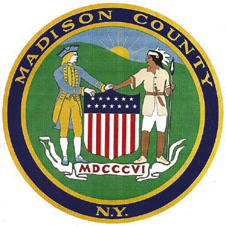 If you are on a public water system, your drinking water is tested regularly to ensure it is safe and free from harmful contaminants. If you are served by a well or other individual water system, when did you last have your water tested? Your water may look, smell, or taste fine, but testing your water is the only way to know if it is safe for you and your family to drink.
If you are on a public water system, your drinking water is tested regularly to ensure it is safe and free from harmful contaminants. If you are served by a well or other individual water system, when did you last have your water tested? Your water may look, smell, or taste fine, but testing your water is the only way to know if it is safe for you and your family to drink.
If your drinking water comes from a well, spring or other source, you should be testing your water regularly for the presence of harmful bacteria and other contaminants. Your individual water supply can be vulnerable to a variety of contaminants. Testing is the only way to determine if your water is safe to drink.
Did you know that water quality from a spring continually changes and such use presents a significant health risk? That springs and surface water sources are subject to contamination from wildlife as well as runoff from agricultural activities and other pollutants? The use of such surface water sources for drinking requires very extensive treatment, and should be avoided altogether. Is your well properly capped with a secure sanitary seal that keeps contaminants, insects and rodents from entering your well?
The testing of public water systems occurs routinely to ensure water meets state drinking water regulations. However, the testing of individual water systems is the responsibility of the homeowner. The Madison County Health Department’s Individual Water System Program continues to provide free water testing services to eligible owners of residential wells, and other small individual onsite water systems serving households in Madison County.
Since being awarded the five-year grant from the Centers for Disease Control in 2016, more than 300 well assessments have been completed by the Madison County Health Department. Notable findings from the water quality tests conducted include an alarming 44 percent of water systems testing positive for coliform bacteria, an indicator that the water system is vulnerable to contamination. Of those positive for coliform bacteria, 16 percent further tested positive for E. coli, which can cause serious gastrointestinal illness. Arsenic was detected in 27 percent of the home water systems tested, with six water sources exceeding the maximum recommended level for arsenic in drinking water.
Water testing is quick and easy. If you are on a private individual water system, contact the environmental health division’s water specialist at 315-366-2526 to discuss arrangements for our free water testing services. An assessment of your water system will be scheduled and depending on findings, measures recommended to improve protection of your water source. Water quality samples will be collected and submitted to a certified laboratory for analyses. The results will be provided to you along with guidance on interpreting the test results and any actions that may be needed if contaminants are detected above levels of concern.
The risk of contamination of your individual onsite water system depends on several factors, including — how the well was constructed, where it is located and if adequate separation exists from sources of contamination (septic systems, agricultural activity, surface water, etc.), how adequately the source is protected, and how well the components of a water treatment system are maintained. Your water quality depends on your local environment, which can affect the quality of the water source from which you draw your water.
Industrial, agricultural and other human activities that occur in your area could potentially impact the quality of the water you drink. Households with onsite individual water systems can determine what sources of contaminants pose a risk to their drinking water by checking on the Health Department’s website that provides mapping of identified contaminate sources in Madison County, including hazardous waste sites, landfills, gas wells and mining activity. Generalized mapping of IWS data indicating geographical areas prone to elevated arsenic, nitrates and other contaminants of concern can also be found at http://bit.ly/McWaterTest.
Madison County Health Department recommends testing your individual water system:
- Yearly for total coliform bacteria and nitrate
- Whenever you notice a change in taste or color of the water
- After working on the water system
- If you notice the well cap is not secure
If you notice surface water standing around the base of the well, call Madison County Health Department’s Individual Water Testing Specialist at 315-366-2526 or go online at healthymadisoncounty.org to learn about our individual water program, testing and other services.
Primary funding for this free water testing program is provided through cooperative agreement CDC-RFA-15-1507 between the U.S. Centers for Disease Control and Prevention and the Madison County, NY Department of Health.

